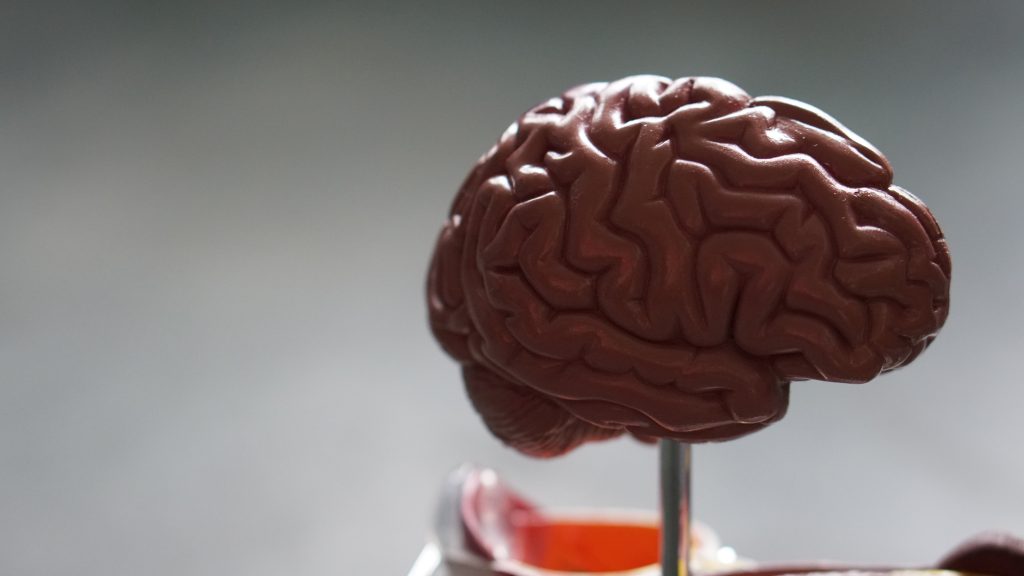Slowly, hopelessness gives way to hope
Alcoholics Anonymous, also known as AA, was founded in 1935 by Bill W. and Dr. Bob Smith in Akron, Ohio. The Big Book and Promises are central to the program.
The primary goal of AA is to help alcoholics* achieve sobriety, and it provides a self-supporting infrastructure in which alcoholics assist others in their goal of quitting drinking.
The “Anonymous” component of Alcoholics Anonymous is intended to shield AA members from external stigma or judgement, and allowing members to remain anonymous gives them the freedom to choose how, when, and to whom they reveal their alcoholism.
Maintaining anonymity is also central to AA’s public relations strategy. AA members refrain from speaking for the fellowship, AA prefers not to advertise or self-promote, and the fellowship prefers not to participate in public affairs. So, maintaining anonymity is critical at both the individual and organisational levels.
Members of Alcoholics Anonymous (AA) generally follow the instructions outlined in the book Alcoholics Anonymous: The Story of How Many Thousands of Men and Women Have Recovered from Alcoholism, also known as the Big Book, for their own sobriety and the welfare of others.
The Big Book’s many chapters dedicated to instruction, explanation, and personal success stories contain its promises, the AA Promises.
The AA Promises were intended to demonstrate the hope, possibility, and inevitable goodness that will result from working the Twelve Steps, participating in the AA community, and assisting other alcoholics in achieving sobriety.
The Promises of AA are found in Chapter 6, “Into Action,” on pages 83-84 of the Big Book.
The Promises of AA.
As outlined in Chapter 6 of the Big Book of Alcoholics Anonymous, alcoholics who remain sober and work the Twelve Steps will see these Promises fulfilled:
Promise 1: We are going to know a new freedom and a new happiness.
Promise 2: We will not regret the past nor wish to shut the door on it.
Promise 3: We will comprehend the word serenity.
Promise 4: We will know peace.
Promise 5: No matter how far down the scale we have gone, we will see how our experience can benefit others.
Promise 6: The feeling of uselessness and self-pity will disappear.
Promise 7: We will lose interest in selfish things and gain interest in our fellows.
Promise 8: Self-seeking will slip away.
Promise 9: Our whole attitude and outlook upon life will change.
Promise 10: Fear of people and economic insecurity will leave us.
Promise 11: We will intuitively know how to handle situations which used to baffle us.
Promise 12: We will suddenly realise that God is doing for us what we could not do for ourselves.
What exactly do the Promises mean?
The Big Book’s Promises primarily describe the alcoholic’s attitude change, which occurs “sometimes quickly, and sometimes slowly.” They may take some time, but “will always materialise if we work for them.”
A person who follows a good alcoholism recovery program will undoubtedly experience an internal shift that results in a new level of peace and well-being. Readers of the Big Bookwill notice the following words emphasised in these Promises, found in Chapter 6, that represent the central benefits and primary goals of recovery:
✓ Freedom
✓ Happiness
✓ Peace
✓ Serenity
✓ Benefit to others
Simultaneously, the Big Book promises the departure of these unwelcome byproducts of alcoholism:
✓ Fear
✓ Regret
✓ Feelings of uselessness
✓ Self-pity
✓ Selfishness and self-seeking
So the Promises are twofold: the person who works a good program will gain a spiritual foundation and a completely new outlook on life, while the dread and negativity of alcoholism will be removed.

Why are the AA Promises important?
There are four sources of advice for recovering alcoholics:
1. The recovering alcoholic attends AA meetings and is mentored by other fellowship members who have completed the Twelve Steps and applied AA principles in their own lives.
2. The program, the Big Book, the Twelve Steps, and their instructions all serve as guides for the recovering alcoholic.
3. The recovering alcoholic develops a relationship with a Higher Power, whatever it may be, and places their trust in spiritual guidance.
4. The final source of wisdom comes from within: the recovering alcoholic must create a positive vision of the future and the determination to make it a reality.
The Promises of the Big Book are essential because they address the fourth source of guidance, the self. They accurately describe to the alcoholic the bright future that awaits anyone who commits to recovery, and they assure the alcoholic of the outcome.
AA promises a new way of living
The Big Book promises the newcomer a new way of living and a happier relationship with life. This is contingent on working the Twelve Steps, which may initially appear intimidating, foreign, or uncomfortable. However, the only requirement for AA membership is the desire to stop drinking. If someone shows up, stays sober, and does their best, they are well on their way to keeping their promises.
*Editor’s note: We prefer person-first language, which prioritises a person’s identity over their disease. However, in keeping with AA’s history, founding principles, and the language that still exists within the fellowship, we have decided to continue using the term “alcoholic” to describe people with substance use disorders.
AA welcomes people with all types of substance use disorders, not just alcoholism. Our goal is to capture the spirit and language of the program to describe the disease of addiction, as well as to approach self-identifying “alcoholics” using the language that AA commonly uses.
If you or someone you know is struggling with alcoholism or another substance use disorder, please get in touch withAddictionsUK at 0800 140 4044 for prompt and confidential information and assistance.
You don’t have to handle the situation alone. Substance use disorders of all kinds are common and treatable, and there is no shame in seeking help for addiction. We are here for you– from detox, through all stages of recovery.
After alcohol abuse, how long does the brain recover?
Recovery from alcohol-related brain damage
William Shakespeare, in Othello, wrote: “O thou invisible spirit of wine, if thou hast no name to be known by, let us call theedevil. O God, that men should put an enemy in their mouths to steal away their brains!”
Research conducted on the effects of alcohol on the brainindicates that the brain can repair itself in a remarkable amount of time after the cessation of alcohol consumption. According to research, the effects of alcohol abuse on the grey matter of the brain, which have been shown to decrease because of alcohol consumption, begin to reverse within two weeks of abstaining from alcohol consumption.
According to Simon Stephens, Case Director at AddictionsUK, “Shrinkage of brain matter and an accompanying increase of cerebrospinal fluid, which acts as a cushion or buffer for the brain, are well-known degradations caused by alcohol abuse because they are associated with the brain. This volume loss has previously been associated with neuropsychological deficits such as memory loss, concentration deficits, and increased impulsivity.”
Any shrinkage of the brain is cause for concern, but alcohol damage is particularly problematic because it’s likely that some of the shrinkage is the result of brain cell death. As soon as brain cells are destroyed, the effects of the damage to the brain are irreversible.
The good news is that some of the changes that occur in the brain of an alcoholic are simply the result of the cells in the brain changing their size. The fact that these cells return to their normal capacity after an alcoholic has stopped drinking demonstrates that some of the consequences of alcohol consumption on the brain can be reversed.
“We found evidence for a rather rapid recovery of the brain from alcohol-induced volume loss within the initial 14 days of abstinence,” said Simon. No previous study has examined the brain immediately at the beginning of alcohol withdrawal or short-term alcohol recovery. This is even though previous studies have provided a detailed description of brain shrinkage and a partial recovery brought about by continued abstinence. The results of some studies support the findings of prior research that some areas of the brain experience a reduction in volume.
The amount of time required for alcohol recovery can be relatively short in some areas of the brain. Although different brain regions recover at varying rates, a study’s preliminary findings indicate that a significant portion of the functionality lost in the brain returns relatively quickly.
“The function of the cerebellum is motor coordination and fine-tuning of motor skills,” Simon explained, citing studies. There is a remarkable, noticeable improvement in motor skills shortly after quitting drinking, which parallels our observation of a quick volume recovery of the cerebellum. This is the case,although we could not quantitatively assess our patients’ amelioration of motor deficits. Higher cognitive functions, like divided attention, are processed in specific cortical regions and take longer to recover. This is reflected in the slower recovery of brain volumes in these regions, which has been seen.

This fact significantly impacts the operations of many alcohol recovery centres and services. In the present day, treatment for alcohol abuse typically only covers the initial phase of detoxification. This lasts anywhere from a few days to a week at a time. Nevertheless, for individuals who are battling addiction, life after alcohol necessitates a continuous dedication to the maintenance of sobriety and the adoption of a healthier way of life. Treatment can be beneficial in the short term for addressing other effects of alcohol on the brain, such as the brain fog that results from drinking. Specifically, this refers to problems such as having trouble concentrating, being confused, and being unable to think through things.
New research indicates that it takes at least two weeks for the brain to begin returning to normal, and this is the point at which the timeline for recovering from alcoholism begins. It is more difficult for the brain to control the urge to drink until it has fully recovered from the injury. The cognitive abilities of the brain are compromised as a result of the consumption of alcohol. After further consideration, Ende and her colleagues have concluded that any treatment for alcohol abuse should be at least two weeks long.
In his poem Ale, Edgar Allan Poe wrote, “Fill with mingled cream and amber. I will drain that glass again. Such hilarious visions clamber through the chamber of my brain—quaintest thoughts—queerest fancies come to life and fade away.”
This quote reflects the profound impact alcohol can have on the mind, often leading to altered states of the mind.
For prompt and confidential support for alcohol-related issues, call Freephone 0800 140 4044.
Freephone: 0800 140 4044
Local rate: 0300 330 3040
